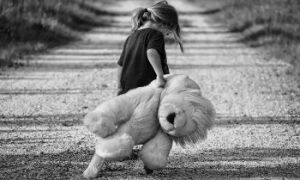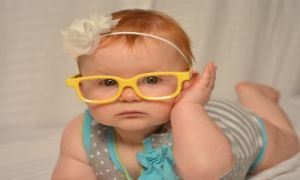

Here are 5 gentle, emotionally intelligent, story-based resources designed to help young children understand body boundaries, safe adults, and protective behaviors.
Talking to young children about child protection is one of the most powerful ways to build their sense of safety, agency, and trust. It’s not about instilling fear—it’s about giving them language, confidence, and clarity to navigate their world. Here’s how to approach it with warmth, honesty, and age-appropriate care.
More than two decades after the abduction and murder of 13-year-old Daniel Morcombe, Queensland has introduced landmark legislation aimed at strengthening child protection. Known as Daniel’s Law, the new bill establishes a public child sex offender registry, allowing families and communities to access critical safety information.
South Australia has become the first Australian state to implement a formal ban on mobile phones within early childhood services. The new regulation is designed to address concerns related to child safety, privacy, and professional conduct in early learning environments.
In an outcome met with collective relief, Victorian health authorities have confirmed that all 2000 children tested for sexually transmitted infections (STIs) in connection with alleged pedophile Joshua Dale Brown have returned negative results. The tests were conducted as a precaution after Brown, charged with over 70 offenses involving children aged five months to two years, was found to have worked across 23 childcare centres over an eight-year span.
Simple songs about consent gently introduce children to concepts like body autonomy, boundary-setting, and respectful communication in ways that feel playful, affirming, and easy to remember. By pairing repetitive rhymes with hand motions, call-and-response, and relatable scenarios, these songs help children internalize messages such as “I can say no,” “I ask before I touch,” and “My voice matters.” Whether used in circle time, transition moments, or home routines, they offer educators and families an emotionally safe, joyful way to teach consent from the ground up.
Creating a safe and empowering environment for preschoolers begins with intentional, age-appropriate education around body autonomy, emotional literacy, and help-seeking skills. This article offers a collection of EYLF-aligned, trauma-informed Child Protection activities designed to foster safety, resilience, and voice in young learners.
Join Semann and Slattery for a free webinar on Tuesday, 8th July, on Protecting Children From Paedophiles and Child Abuse, with practical strategies to ensure protective mechanisms are in place.
In NSW, nominated supervisors, persons in day-to-day charge and family day care co-ordinators must complete a child protection course required by a Government protocol, by section 162A of the Children (Education and Care Services) National Law.
The Victoria's Child Safe Standards Posters are a set of mandatory requirements to protect children and young people from harm and abuse. The new 11 Child Safe Standards came into force in Victoria on 1 July 2022.
 As an Educator in Australia, your pay rate falls under the Children’s Services Award 2010. This award states the minimum amount that an employer can… Read More
As an Educator in Australia, your pay rate falls under the Children’s Services Award 2010. This award states the minimum amount that an employer can… Read More
 When working as a qualified Early Childhood Teacher (with a university degree) within a service, your rate of pay will come from the Educational Services… Read More
When working as a qualified Early Childhood Teacher (with a university degree) within a service, your rate of pay will come from the Educational Services… Read More
 When working as a Diploma Qualified Educator your pay rate is from the Children's Services Award 2010. This Award states your minimum rate of pay… Read More
When working as a Diploma Qualified Educator your pay rate is from the Children's Services Award 2010. This Award states your minimum rate of pay… Read More
 When working as a Cert 3 Qualified Educator, your pay rate is from the Children's Services Award 2010. This Award states your minimum rate of… Read More
When working as a Cert 3 Qualified Educator, your pay rate is from the Children's Services Award 2010. This Award states your minimum rate of… Read More
 Educational Leaders play a crucial role in their early childhood service by ensuring that the educational program aligns with best practices and supports the holistic… Read More
Educational Leaders play a crucial role in their early childhood service by ensuring that the educational program aligns with best practices and supports the holistic… Read More
 In early childhood education and care, ratios are more than a technicality—they are a frontline safeguard. Every child deserves responsive supervision, emotional connection, and developmental… Read More
In early childhood education and care, ratios are more than a technicality—they are a frontline safeguard. Every child deserves responsive supervision, emotional connection, and developmental… Read More
 Here’s a comprehensive Mobile Phone and Smart Watch Policy tailored for early childhood education and care (ECEC) services in Australia, aligned with the latest 2025… Read More
Here’s a comprehensive Mobile Phone and Smart Watch Policy tailored for early childhood education and care (ECEC) services in Australia, aligned with the latest 2025… Read More
 With the new national child safety reforms kicking in on 1 September 2025, early childhood services like yours have a real opportunity to lead the… Read More
With the new national child safety reforms kicking in on 1 September 2025, early childhood services like yours have a real opportunity to lead the… Read More
 The Sea of Fish Challenge is a national initiative that invites children, educators, families, and communities to create and display fish artworks as a symbol… Read More
The Sea of Fish Challenge is a national initiative that invites children, educators, families, and communities to create and display fish artworks as a symbol… Read More
 Across the early childhood education and care sector, educators are sounding the alarm: current staffing ratios are insufficient to deliver safe, meaningful, and developmentally appropriate… Read More
Across the early childhood education and care sector, educators are sounding the alarm: current staffing ratios are insufficient to deliver safe, meaningful, and developmentally appropriate… Read More

In early childhood, positive relationships with teachers are extremely important for intellectual, social and emotional...
See more...
It is the duty of adult caregivers to ensure that young children are exposed to...
See more...
As Educators working with children, it's important to understand each theoretical approach and use parts...
See more...© 2009-2025 Aussie Childcare Network Pty Ltd. All Rights Reserved.

